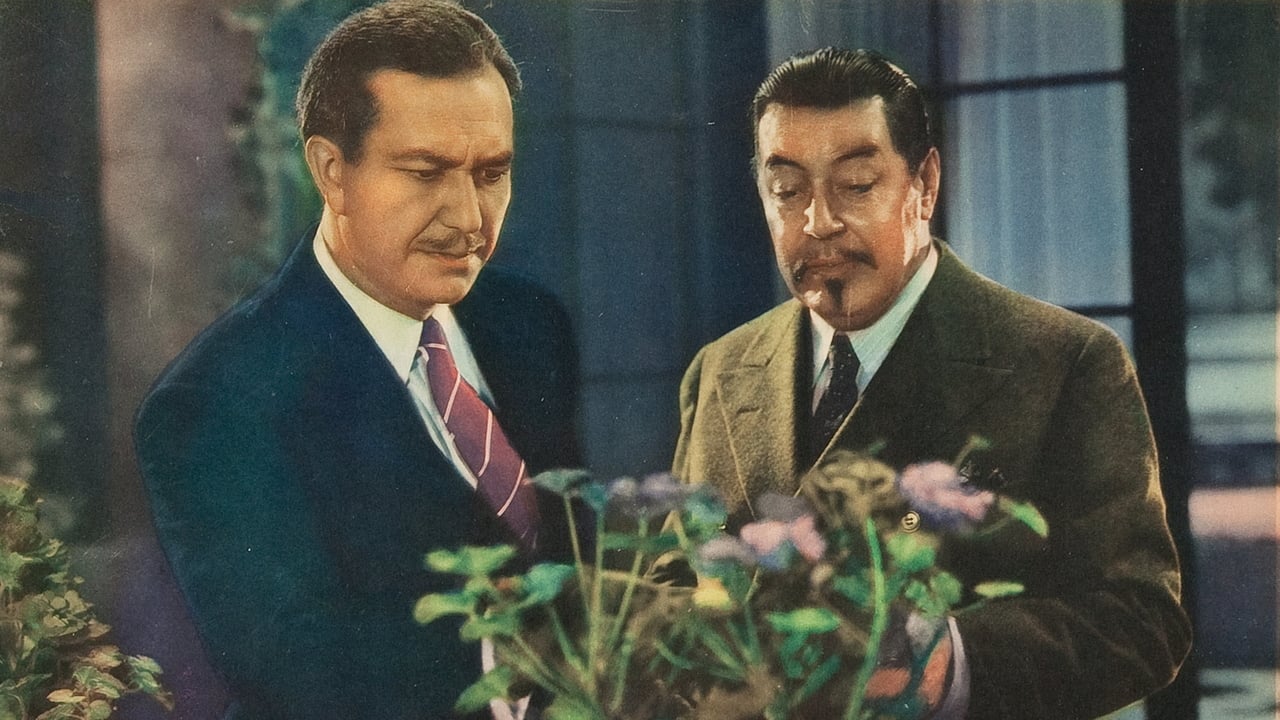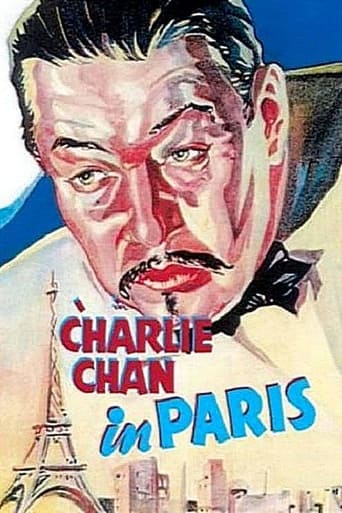

Charlie Chan In Paris is a little too melodramatic for me; it has a murder take place during an apache dance, and it's main plot device is the killer disguising himself as a disabled war veteran to commit the murders. It reminded me of Conan Doyle's The Man With The Twisted Lip, and with its botched murder attempt on Charlie, The Final Problem.In Paris isn't a bad film by any means. Warner Oland is always welcome and the entrance of Lee Chan (Keye Luke - not as comic relief here but straight support) was to prove a popular staple for a number of years. The scene where Lee first meets his father in Paris is very warm and beautifully played by both actors.The plot concerns Charlie investigating Bank bond forgeries in Paris, which involves several murders and an innocent person again suspected of the crime (a very hoary scene of the murderer throwing the gun he's used into the room and the innocent girl immediately picking it up and holding at gunpoint the people who turn up to investigate the shots!) So what we are really left with are a number of good scenes in a movie that never quite gels. The mystery itself is not as engaging as the one in the previous film Charlie Chan In London, but this is still a reasonably enjoyable detective movie. Not the best of the Chans, but still okay.
... View MoreDirectly from solving successfully the London murder mystery, Charlie Chan goes on to Paris - on account of a British bank, who's discovered there's some strange business with bonds going on at a Parisian bank, with huge sums of money involved, of course. In Paris, Charlie has got an undercover helper who's been working on the case for a while and has gathered quite some information; and they agree that he and the beautiful young dancer meet right after her performance - but, there's a pretty gruesome beginning to this new case: at the end of her magnificent dancing performance, pretty Nardi is brutally stabbed before she can give any information to Charlie.At least, he finds something in her apartment: a notebook with everything she'd found out, which contains the name of one of the bank's employees, Dufresne, who's been spending surprisingly high amounts of money lately... But Dufresne is soon murdered himself, and the suspicion falls on the bank director's daughter Yvette, who once had an affair with him; then there is Victor Descartes, now Yvette's fiancée and also an employee at the bank, their friend, painter Latouche - and a mysterious, crippled beggar who always seems to turn up near the scene of every crime...Sounds complicated? In fact, it IS, and it requires absolute attention by the audience - and of course of by Charlie, who's in constant danger... To his good fortune, his 'number 1 son' Lee (Keye Luke, in his first appearance in the series) appears in Paris to assist his father! Another VERY well done classic crime mystery, absolutely worth watching and still fresh after 80 years...
... View More20th Century Fox recognized a money-spinner when it saw one. Between 1931 and 1942 the studio produced no fewer than 27 Charlie Chan films, first starring Warner Oland and later Sidney Toler. Unfortunately, of the sixteen films starring Warner Oland, four have been "lost." For a great many years, however, the number of "lost" films stood at five--until a single print of the 1935 CHARLIE CHAN IN Paris was located.Like the earlier CHARLIE CHAN IN London, this film shows the series in full stride, a neat mixture of comedy and mystery bolstered by a solid cast. It is particularly notable as the first film in the series to introduce Chan's son Lee, memorably played by Asian-American actor Keye Luke, who would continue the role through several films. This episode finds Chan in, of course, Paris--pretending to be on vacation while in fact investigating counterfeit bank bonds in a mystery that leads Chan to the infamous sewers of the city.Chan films, particularly those starring Oland, often use the device of allowing other characters to show vulgar racism toward Chan--and Chan often encourages such dismissiveness to his own ends; underestimation of Chan's talents often delivers the killer into the detective's hand. At times, however, the device has an unfortunate tone, and that occurs here, particularly in an early scene which presents Chan speaking in pidgin and then joining others in their laughter at the "joke." This sort of patronization would be soon dropped from the series, but it is significantly offensive when it occurs.That aside, however, CHARLIE CHAN IN Paris is quite a good entry in the series, which features dancing spies, stolen love letters, and shots in the dark. The cinematography is typically static and the acting is a bit broad, as is typically of many mid-1930s films, but it's quite a bit of fun.Gary F. Taylor, aka GFT, Amazon Reviewer
... View MoreIt's the first movie that I see in the Charlie Chan's series. I must say that I liked it. It's a pretty good mystery taking place in Paris. Like other films of this genre, the answer to the puzzle is not known until the end. Like good old Charlie says in the movie: «Must turn many stones to find hiding place of snake»! The dance scene at the Singe Bleu is quite compelling.Out of 100, I gave it 78.
... View More